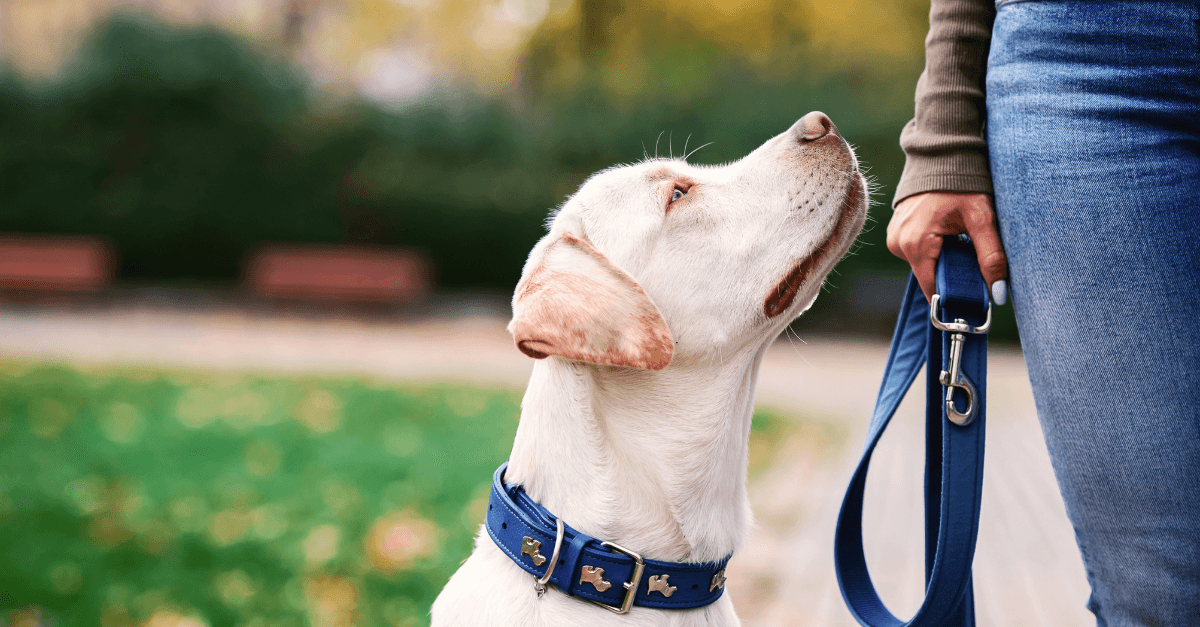The importance of a board certified veterinary behaviourist in animal care
Wiki Article
Understanding the Role of a Veterinary Behaviourist in Family Pet Training and Well-being
The role of a vet behaviourist is necessary in resolving the complex relationship in between pet dogs and their proprietors. They combine vet medication with insights from pet habits science to tackle issues like aggression and anxiety. Unlike typical instructors, their approach concentrates on the underlying reasons for these habits. This nuanced perspective increases concerns about the efficiency of traditional training methods and how a much deeper understanding can transform pet health. What approaches do they utilize to achieve these outcomes?What Is a Vet Behaviourist?
A veterinary behaviourist is a customized professional who focuses on understanding and addressing the behavioral problems of animals, especially animals. Their proficiency incorporates veterinary medicine and animal habits science, allowing them to detect and deal with a wide variety of behavioral problems - board certified veterinary behaviourist. These specialists commonly hold postgraduate degrees, such as a Master's or PhD in pet habits, and are certified by relevant organizations, guaranteeing they possess a deep understanding of animal psychologyVet behaviourists examine animals via detailed observation and evaluation, thinking about variables such as genetics, environment, and training background. They develop customized behavior alteration plans, which might consist of desensitization methods, positive reinforcement techniques, and environmental adjustments. Cooperation with pet dog owners is necessary, as they offer assistance and support throughout the training process. Eventually, the goal of a vet behaviourist is to boost the well-being of the pet while promoting an unified connection between pets and their proprietors.
The Importance of Comprehending Animal Habits
Understanding animal actions is vital for both animal proprietors and professionals in the field of animal treatment, as it lays the structure for reliable interaction and training. Acknowledging how animals regard their environment and reply to stimuli allows caregivers to develop a more unified living situation. Understanding into behavioral signs, such as body movement and articulations, cultivates stronger bonds between animals and their proprietors. By appreciating the all-natural reactions and demands of different varieties, individuals can customize their training approaches to fit these elements, advertising far better learning and teamwork. Furthermore, a solid understanding of behavioral science help in identifying stress factors and prospective triggers, allowing for aggressive interventions. In general, recognizing pet behavior not just enhances the health of animals yet likewise improves the experiences of those who look after them, eventually leading to healthier, better connections.Usual Behavioral Issues Attended To by Vet Behaviourists
Veterinary behaviourists regularly address typical behavioral problems in pet dogs, including hostility and fear actions. They additionally concentrate on anxiousness and stress administration, which can greatly affect a pet's health. Understanding these problems is essential for establishing reliable training and treatment techniques.Hostility and Anxiety Responses
While numerous pet dog proprietors may check out aggressiveness and fear reactions as easy behavior concerns, these complex responses often come from underlying stress and anxiety or previous injury. Vet behaviourists play a necessary function in recognizing the origin of these actions, which can show up in numerous kinds, consisting of growling, attacking, or too much anxiety of particular scenarios. Understanding these triggers is important for establishing efficient training approaches customized per pet dog's one-of-a-kind conditions. Behaviourists use approaches such as desensitization and counter-conditioning to aid pet dogs handle their anxieties and aggressiveness. In addition, they inform family pet owners about appropriate management strategies, stressing the relevance of persistence and consistency. Dealing with aggression and fear feedbacks not just enhances the animal's lifestyle but additionally reinforces the bond in between animal and owner.Anxiousness and Stress Management
Anxiousness and stress are prevalent issues that several pets encounter, frequently arising from modifications in their environment, absence of socializing, or previous unfavorable experiences. Vet behaviourists play a crucial function in identifying the underlying reasons for these problems. They utilize various strategies, consisting of behavioral alteration, desensitization, and counter-conditioning, to aid animals manage anxiousness. Additionally, they might suggest ecological adjustments, such as developing secure areas or providing enrichment tasks that promote relaxation. Cooperation with family pet proprietors is necessary, as behaviourists direct them in recognizing their family pet's signals and implementing efficient coping strategies. By attending to anxiousness and tension, vet behaviourists contribute substantially to improving the general health and quality of life for family pets and their families.Exactly How Vet Behaviourists Vary From Traditional Fitness Instructors
Vet behaviourists vary from conventional fitness instructors largely in their educational backgrounds and training. While standard instructors frequently focus on obedience and standard commands, vet behaviourists stress understanding and addressing underlying behavioral problems, including clinical factors to consider into their method. This unique focus enables them to supply an extra thorough treatment for animals with complicated behavioral difficulties.Education And Learning and Training Distinctions
Comprehending the difference in between veterinary behaviourists and standard fitness instructors is necessary for pet dog proprietors looking for reliable training options. Vet behaviourists have postgraduate degrees in vet medicine, typically complied with by specialized training in animal behaviour. This education equips them to address intricate behavioral problems that may stem from medical problems or emotional elements. On the other hand, traditional instructors usually have accreditations from training programs that concentrate on obedience and standard commands without click for more delving into the underlying psychological or clinical elements. While both experts aim to improve animal practices, veterinary behaviourists can detect and treat behavioral issues holistically, incorporating medical expertise right into training techniques. This vital distinction highlights the significance of selecting the ideal professional based on the animal's specific requirements.Focus on Behavioral Issues
Dealing with behavioural problems requires a nuanced technique that distinguishes veterinary behaviourists from typical fitness instructors. While traditional trainers typically focus on obedience and standard commands, vet behaviourists explore much deeper right into the underlying reasons of troublesome behaviors. They employ a substantial understanding of animal psychology and therapy techniques, which are rooted in clinical research. This competence enables them to identify concerns coming from stress and anxiety, anxiety, or hostility, instead of merely dealing with Look At This surface-level signs and symptoms. On top of that, veterinary behaviourists analyze the animal's general well-being, considering environmental elements and the animal's background. By integrating clinical expertise with behavioural strategies, they supply tailored solutions that advertise long-lasting behavioural adjustment, ensuring both the pet dog's and proprietor's high quality of life are markedly boosted.Medical Factors To Consider Included
While typical trainers may forget underlying medical issues, veterinary behaviourists prioritize a detailed evaluation of a family pet's health as a fundamental action in addressing behavioral troubles. This strategy enables them to determine prospective medical conditions that may add to unwanted practices, such as anxiousness, discomfort, or neurological disorders. By incorporating clinical examinations right into their method, veterinary behaviourists can collaborate with vets to assure an alternative understanding of the pet's health. In addition, they can advise proper treatments or adjustments to training plans based upon medical searchings for. This substantial viewpoint differentiates vet behaviourists from traditional trainers, as they deal with both behavioural and health-related elements, inevitably bring about more efficient and sustainable end results for family pets and their proprietors.
The Process of Collaborating With a Vet Behaviourist
Collaborating with a vet behaviourist involves a systematic technique to addressing a pet dog's behavioral issues. The procedure begins with an extensive assessment, where the behaviourist gathers thorough info about the pet dog's background, atmosphere, and details click over here now actions that are problematic. This commonly consists of surveys, interviews with the animal owner, and sometimes observations of the family pet in its atmosphere.Complying with the assessment, the veterinary behaviourist creates a tailored intervention strategy that may include behavioral modification methods, training strategies, and, if needed, suggestions for medical examinations. cat behaviourist near me. The plan is made to be sensible and attainable, making sure that it fits flawlessly right into the family pet proprietor's lifestyle
Subsequent follow-up sessions are necessary to monitor progression, adjust approaches, and provide support. This collective effort not only aims to modify unwanted behaviors however additionally to boost the total health of the pet dog, making certain a harmonious relationship between the family pet and its owner.
Enhancing Your Pet dog's Lifestyle With Behavioral Support
Enhancing a family pet's high quality of life with behavioral support is important for fostering a healthy and satisfying connection in between pet dogs and their proprietors (board certified veterinary behaviourist). Veterinary behaviourists play an essential role in recognizing and attending to behavioral concerns that may hinder an animal's health. With tailored strategies, they assist relieve anxiousness, fear, and aggression, ultimately promoting a much more balanced and pleased petBehavior support incorporates different methods, including favorable reinforcement, environmental enrichment, and socializing. By carrying out these approaches, owners can produce a caring environment that motivates positive actions. This not only enhances the pet dog's psychological wellness however also enhances the bond in between animal and owner.
Furthermore, routine examinations with a vet behaviourist warranty that any emerging behavioral concerns are promptly attended to, stopping acceleration. Generally, investing in behavior support is a proactive strategy that substantially enriches an animal's life, leading to improved physical and psychological health and wellness results.
Regularly Asked Inquiries
What Credentials Do Veterinary Behaviourists Have?
Vet behaviourists usually hold a veterinary degree, followed by specialized training in pet actions. Several additionally have accreditations from recognized companies, showing their expertise in dealing with animal habits problems and promoting total pet well-being.Can Veterinary Behaviourists Prescribe Drug for Animals?


Vet behaviourists, having veterinary levels and specialized training, can undoubtedly recommend drug for pets. This capability permits them to resolve underlying behavioral problems effectively, usually incorporating medicinal therapy with behavior alteration approaches for best end results.
For How Long Does Behavior Modification Commonly Take?
Behavioral treatment period differs substantially, generally ranging from a couple of weeks to a number of months. Variables affecting this timeline include the pet dog's particular issues, uniformity of training, and the owner's engagement in the process.Are Remote Appointments Available With Vet Behaviourists?

Exactly how Much Does a Vet Behaviourist Consultation Price?
The price of a vet behaviourist appointment generally varies from $100 to $300, relying on elements such as place, experience, and session length. Additional charges might request follow-up appointments or specialized solutions.Report this wiki page